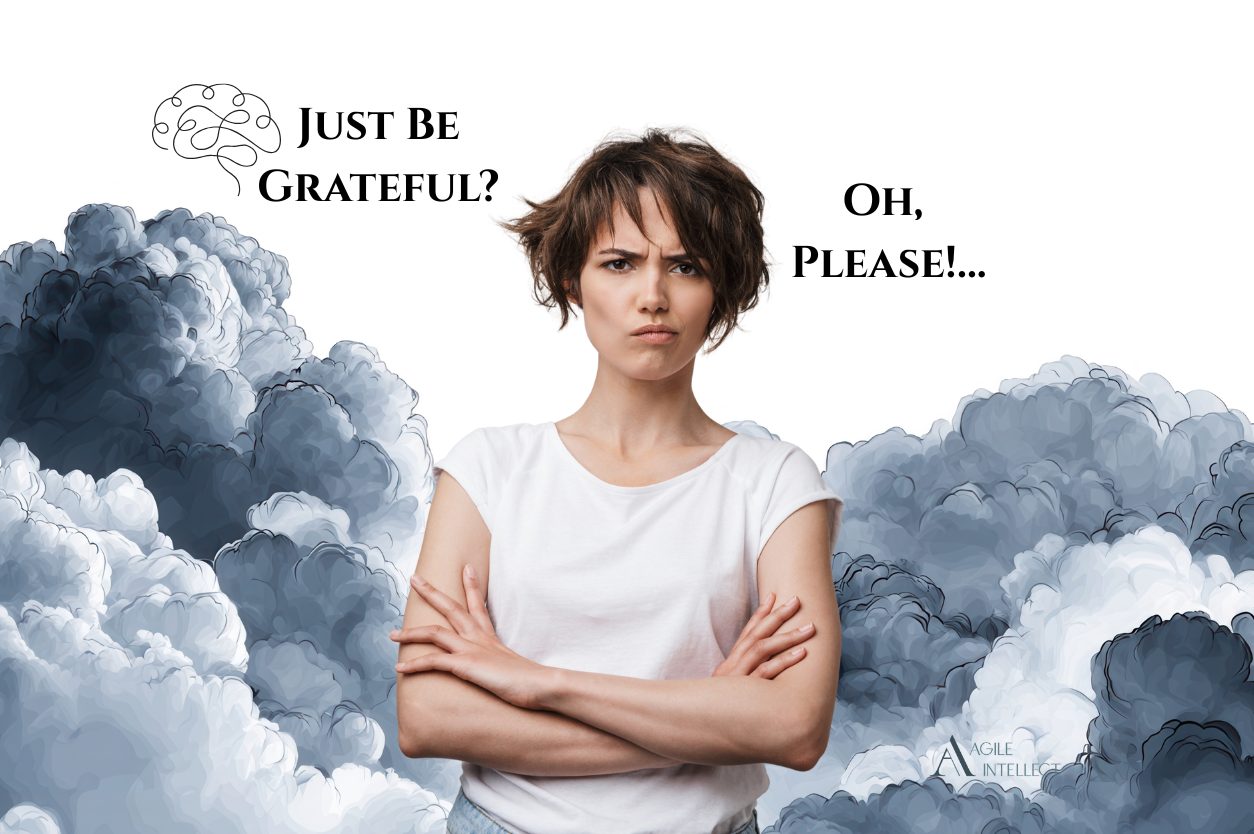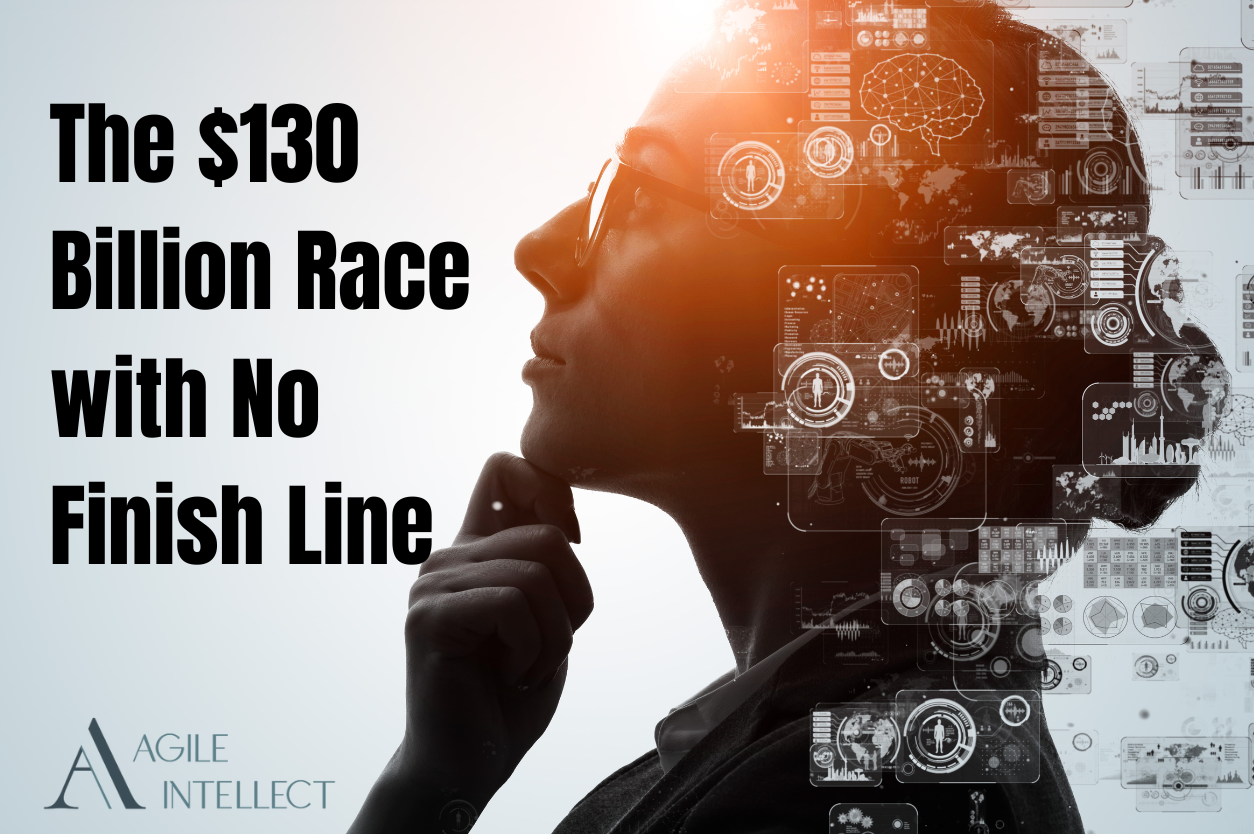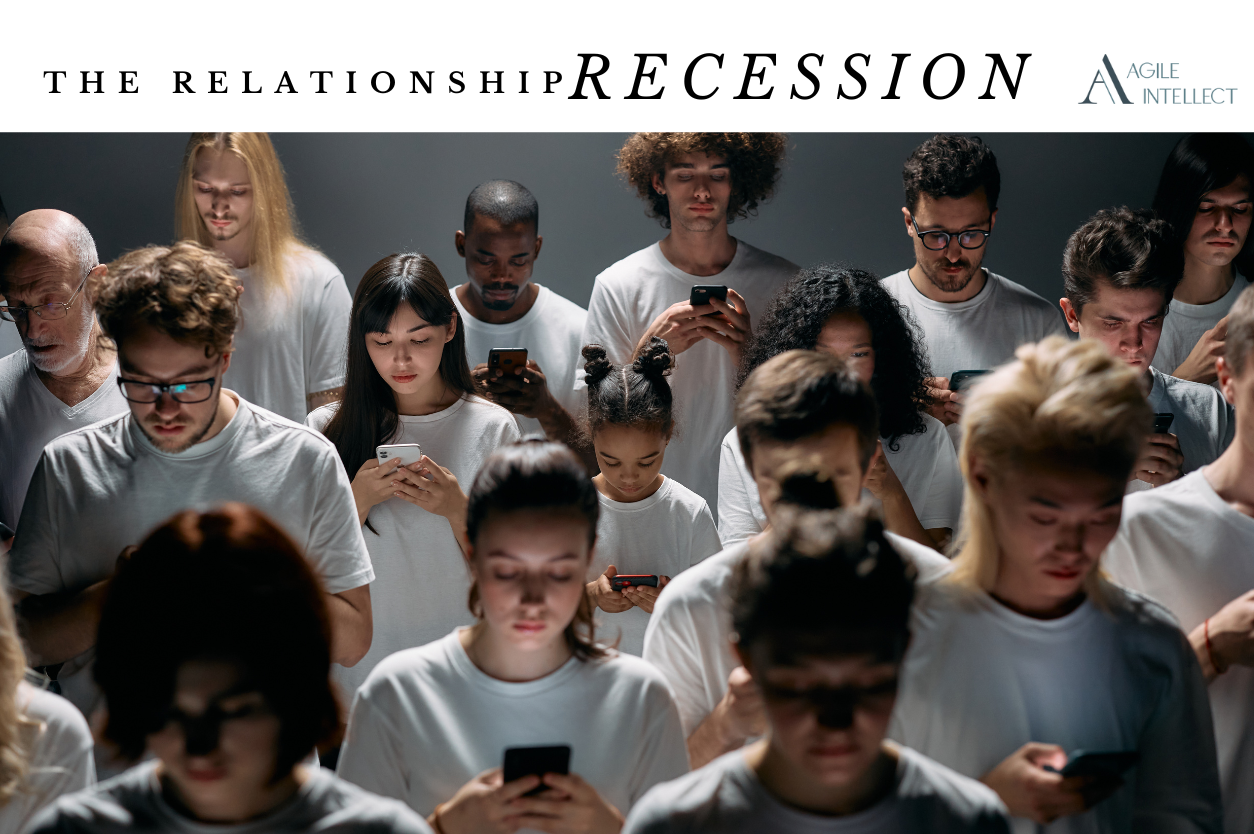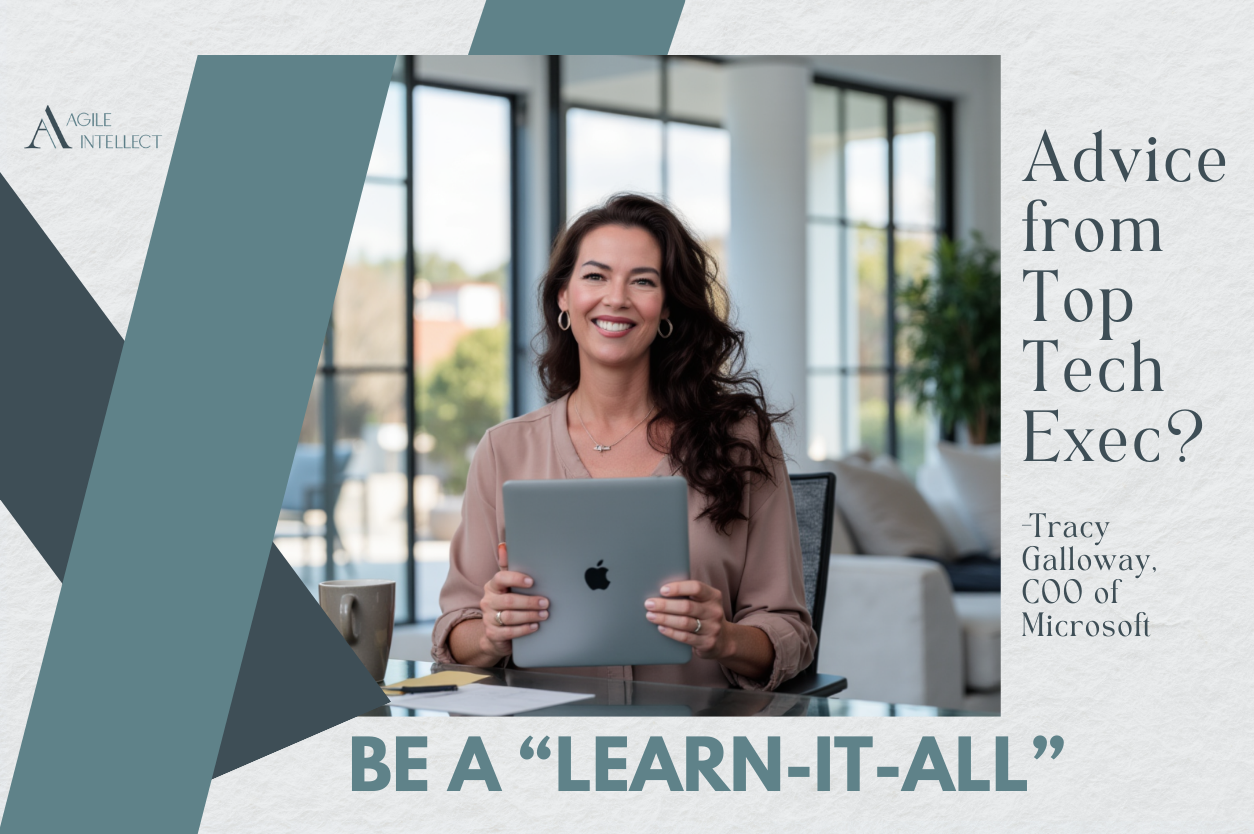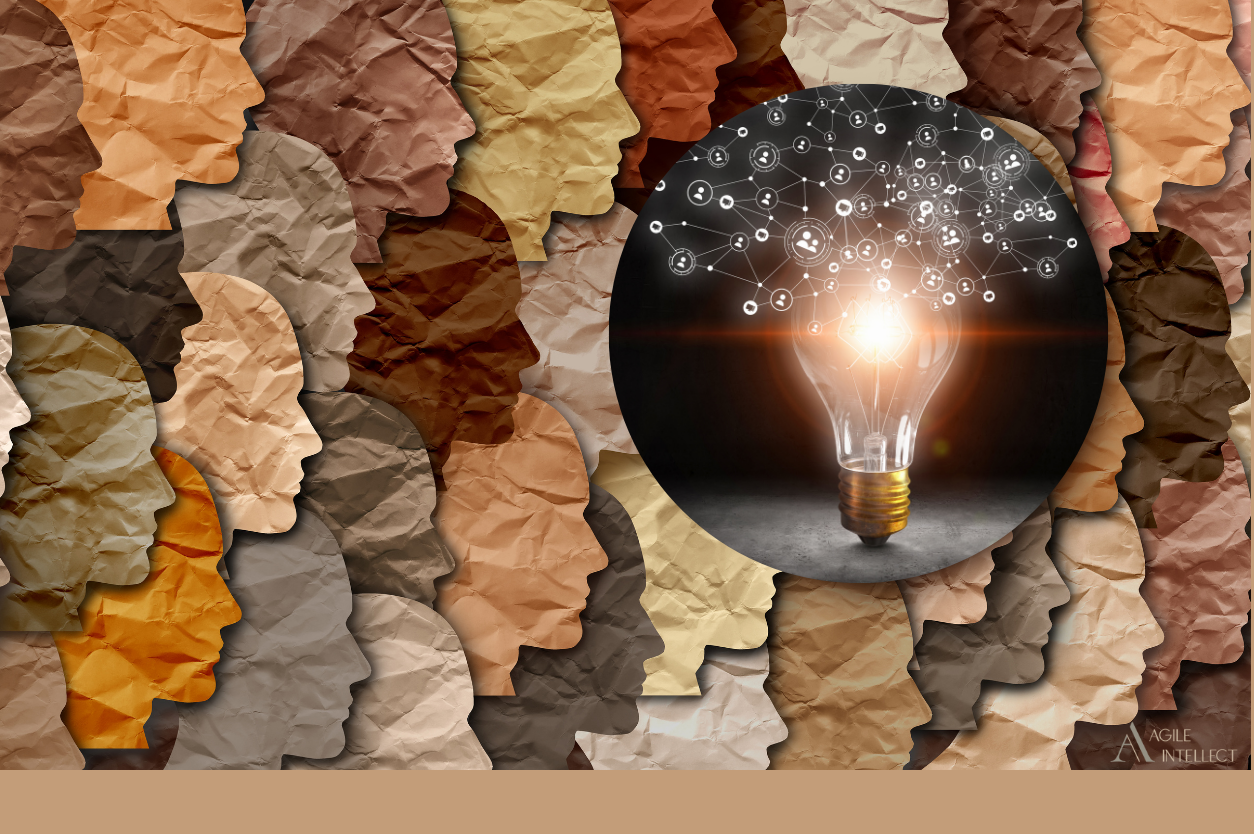Your Brain on Gratitude: Why It's Both Powerful and Painful
Are you skeptical about gratitude practices?
In my research into the power of gratitude, I've discovered something fascinating: While our brains are literally wired to benefit from gratitude, they're also programmed to resist it.
In this quick-read article, I'll reveal why this paradox exists and how understanding it can transform your professional performance and personal wellbeing.
The $130 Billion Race with No Finish Line: Your Brain's Opportunity in the AI Revolution
Ever wonder why tech giants like Microsoft are investing a staggering $130 billion in AI infrastructure this year alone? Because they see what visionaries have always known: the future belongs to those who can adapt.
In an illuminating conversation at a recent Women in STEM panel, Microsoft's COO shared insights that revealed something extraordinary - we're living through one of the most transformative moments in human history.
And while companies race to build tomorrow's infrastructure, you have a unique opportunity to revolutionize how your brain navigates this exciting new world.
This isn't just about keeping up with technology.
It's about discovering how to thrive in an era of unprecedented possibility, where your mental bandwidth becomes your greatest competitive advantage.
Want to learn the strategies that top performers are using to stay ahead of the curve?
Click on the link to discover how to transform today's challenges into tomorrow's breakthroughs.
The Relationship Recession Starving Your Brain
🧠 In an era where AI handles our emails and texts replace coffee chats, we're facing an invisible crisis: our relationship-building muscles are atrophying, and it's costing us more than we realize.
The "Just Text Me" mindset isn't just changing communication preferences—we're systematically undermining the very cognitive capacities that will differentiate high-value professionals in an AI-saturated world.
Here's the paradox: While building relationships may feel like bandwidth you can't spare, it's actually one of the highest-ROI investments in expanding your mental capacity.
🔍 Read my latest piece to discover:
• Why face-to-face interaction is biologically necessary for optimal brain function
• The hidden cognitive cost of defaulting to digital communication
• One simple action to start rebuilding your relationship muscles today
The Education Gap That's Bleeding Into Your Workplace
"But with what funding?"
Four words that silenced the entire room at The Women in STEM meeting, including tech leaders and educators.
As Microsoft's COO discussed accelerating education to match AI advancement, this stark question from a local teacher exposed a crisis affecting every professional - whether you realize it or not.
The Learn-It-All Mandate: Why Mental Bandwidth is Your Most Valuable Asset
Microsoft's COO's advice? "Be a "learn-it-all", not a "know-it-all." While it feels impossible to make space for expanding your intelligence given the current pace of life, it's not optional if you don't want to get left behind.
Tracy Galloway oversees 15,000 employees at Microsoft Americas. She processes 150 emails in 15 minutes using AI. And she can't rest on yesterday's knowledge. Here's the uncomfortable truth she shared at a recent Women in STEM panel:
→ Microsoft is spending $130 BILLION this year on AI infrastructure
→ They're employing 110,000 contractors just to build data centers
→ They have ZERO bandwidth to educate users
Translation: You're on your own.
The uncomfortable truth? Tracy's mandate- learn something new every day- isn't wrong. In fact, it's essential.
Read more in the Brain Boss Newsletter Below.
Why Age & The Diversity of Minds Are Your Competitive Edge
🧠 What if your next competitive advantage isn't hiding in new tech or market data—but in the minds you've been overlooking? In this article, I dive into the neuroscience behind why diverse teams win—and how to unlock the hidden potential of age-diverse, neurodiverse collaboration.
You'll discover:
✨Why experience-based pattern recognition becomes MORE valuable in volatile markets
✨ How neurodivergent thinking drives innovation and quality improvements
✨ The science behind why "different" often means "better" for complex problem-solving
✨ Practical strategies for building high-performance teams across cognitive styles and generations
Ready to turn intergenerational and cognitive diversity into your strategic moat? Click through for the full analysis and action plan.
Why Your Brain Craves Carbs When Daylight Shrinks—and What to Do About It
🧠 BRAIN SCIENCE ALERT: "Why do I want pasta for breakfast, bread for lunch, and cookies for dinner?"
The answer isn't willpower. It's biochemistry.
Your brain is responding predictably to shorter days, and if you're a woman over 40, you're getting hit 4x harder than your male colleagues. Here's the neuroscience behind what's happening—and the strategic moves that actually work. (Spoiler: Fighting your biology is futile. Working WITH it? That's where the magic happens.)
👇 Read the full 4-minute breakdown below 👇
Does Your Brain Feel Like It's Running 47 Browser Tabs at Once?
🧠 Does your brain feel like it's running 47 browser tabs at once? If you're constantly switching between emails, Slack, spreadsheets, and "urgent" fires, you're not imagining that mental drag. Your brain isn't broken—it just needs better traffic control. I've discovered a simple 90-second habit that transforms chaotic task-switching into smooth gear changes. No more mental restarts every time you pivot.
The secret? Teaching your brain to use a clutch instead of slamming on the brakes.
Your Brain's Second Act: the US POINTER study just changed everything we know about cognitive aging
Big news for anyone who's ever worried about staying mentally sharp as they age 🧠. The largest U.S. clinical trial on cognitive health just dropped results that should be on every leader's radar: 2,111 older adults at risk for cognitive decline actually IMPROVED their brain function through structured lifestyle changes. Not slowed decline. Improved.
The US POINTER study proves what neuroscientists have suspected—multi-domain lifestyle interventions work. But here's what grabbed my attention: participants who followed a structured program significantly outperformed those going it alone.
The accountability factor made all the difference.
As someone who's spent years developing brain optimization frameworks, this validates everything I teach in the Mental Bandwidth Solution—except the foundation is laid in 12 weeks, not 2 years. If you're juggling endless Zoom calls, fighting afternoon brain fog, or worried about maintaining your mental edge in an AI-driven world, this research is your wake-up call. The science is clear: cognitive decline isn't inevitable.
Full analysis below on what this means for your brain's future 👇
The Neural Secret to Surviving Our Most Divisive Moments: Why Your Brain Needs Perspective-Taking Now
The events of September 10, 2025, revealed a troubling truth: when tragedy strikes, polarized communities default to division instead of understanding—a pattern that has destroyed societies throughout history. Perspective-taking activates specific brain networks that can break this cycle, transforming conflict into cognitive collaboration for leaders navigating our volatile world. The question isn't whether you agree with opposing viewpoints—it's whether you can understand them well enough to lead effectively through crisis.
Read below to learn more about the innate wiring we can utilize to face the challenges of polarization, regardless of your beliefs.
Fall's Harvest: What Nature Teaches Us About Brain-Protective Nutrition
🍁 Feeling the shift in seasons? As we transition into fall, many of us are craving a reset - not just for our bodies, but for our brains. I want to share some crucial insights about why fall is a beautiful season for brain-protective nutrition.
In this article, I break down:
• How Fall's harvest provides exactly what our brains need
• The top neuroprotective compounds found in foods
• How to leverage autumn's harvest for cognitive clarity
• A free guide to the 10 best neuroprotective foods.
Ready to optimize your brain health this season? Read on, and learn more about the Seasonal Detox Program. 👇
The $20 Million Dollar Decision That Changed Everything
Ever notice how a single clear-headed decision can be worth more than a hundred exhausted ones? As a neuroscience-informed performance consultant, I've watched countless brilliant executives unknowingly sabotage their cognitive performance by treating their brain's energy reserves like an unlimited credit card.
But here's the reality: your brain, despite being only 2% of your body weight, consumes a staggering 20% of your daily energy. And just like any sophisticated system, it has a precise way of budgeting this energy—whether you're aware of it or not. In this article, I share research on how your brain allocates its limited resources and reveal practical strategies that help high-performing leaders optimize their mental bandwidth.
Your Brain's Secret Boss: How Metacognition Gives You an Edge
Busy doesn’t equal effective. Metacognition is the executive skill that turns activity into outcomes. When you can see your thinking in real time—plan, monitor, adjust—you make cleaner decisions, avoid zombie projects, and lead with clarity.
In “Your Brain's Secret Boss: How Metacognition Gives You An Edge,” I share practical moves like
💫 90-second pattern breaks
💫 6-minute "Red Team" Minutes, and the
💫 Plan-Check-Pivot Method
If you’re ready to trade urgency theater for measurable progress, this is your blueprint. 👇 Click on the article below.
The Science Behind Why You Forget Names (And 5 Strategies That Actually Work)
🧠 Why Your Brain Struggles With Names
As we advance facial recognition technology and AI-powered networking tools, there's a fascinating paradox worth examining: while machines are becoming increasingly sophisticated at matching faces to names, the human brain—our original inspiration—actually struggles with this exact task.
Your brain can remember a colleague's face from a conference five years ago but will forget their name five seconds after an introduction. This isn't a design flaw—it's a fundamental feature of human cognition.
To understand key findings that should reshape our approach to networking, read more below 👇
You will also find access to a free assessment of your name recall, the top interfering factors that impede name recognition, and strategies to do something about it!
The Productivity Secret That 87% of Professionals Ignore (And Why Your Brain is Begging For a Break)
You know that feeling when you've been grinding through a complex project for hours, and your brain feels like it's running on fumes? Here's what neuroscience research has been trying to tell us for years: those "productivity breaks" we keep skipping aren't luxury—they're necessity.
New research reveals that 87% of professionals systematically ignore one of the most powerful cognitive performance tools available to us. The irony? We're so focused on maximizing output that we're actually sabotaging our brain's ability to deliver peak performance. This isn't about working less—it's about working smarter by understanding how your prefrontal cortex actually functions under sustained cognitive load. The data is fascinating, and the practical implications for your daily productivity are game-changing.
Read on to learn more and access to Agile Intellect’s Guide to Brain Breaks.
Smarter Together: How Meaningful Interaction Rewires Your Brain for Empathy, Trust, and Purpose
🧠 Is face-to-face conversation becoming out-dated? Recent neuroscience research shows that real human interaction—not just Zoom calls or Slack threads—literally rewires our brains for better collaboration, sharper decision-making, and long-term cognitive health. From trust-building chats to nature walks with purpose, social engagement is proving to be one of the most underrated (and brain-activated) strategies for professional growth. This article breaks down the science behind why talking it out might be your smartest move yet—and how leaders, knowledge workers, and teams can use it to build lasting cognitive advantage.
Think of it as a brain upgrade… powered by people. 🔗 Dive in, share this with a coworker, and let’s rethink what productivity truly looks like.
The Professional's Focus Toolkit: Neuroscience-Backed Strategies at Work
🧠 What if the secret to peak performance isn't working harder—but mastering your brain's spotlight? The average professional loses 2.1 hours daily to distraction, yet elite performers access a state where focus becomes effortless. Discover how your brain's 'attention architecture' works, and why mastering it could be your biggest competitive advantage.
Is AI your Brain’s Best Frenemy? How to Navigate Digital Delegation without Losing Brain Cells
🔍 Are Your Favorite AI Tools Quietly Reshaping How You Think? As professionals navigating the AI revolution, we often celebrate how tools like ChatGPT have supercharged our productivity. But emerging neuroscience research signals a surprising side effect: cognitive offloading might be making our brains lazy. With findings from MIT and other institutions highlighting dips in memory, creativity, and critical thinking when we over-rely on AI, it’s time to ask—are we gaining efficiency at the cost of mental agility? This post dives into the AI Paradox: how to embrace digital assistance without sacrificing your most valuable asset—your brainpower.
Your Brain on Screens: The Plot Twist No One Saw Coming
Is your smartphone making you dumber? 🧠📱 New research reveals a shocking truth about our digital habits. We've all felt it—that brain fog after a long day of screens, the struggle to focus during important meetings, or the mysterious disappearance of our once-sharp memory. But what if I told you this isn't just "modern life" or aging? Science now shows that excessive screen time is literally rewiring our brains, triggering the same reward pathways as addictive substances and shrinking the areas responsible for attention, empathy, and complex thinking. The good news? Your brain's incredible neuroplasticity means these changes are reversible. In this edition of the Brain Boss Suite Newsletter, I dive into:
✅ Why your "just 5 more minutes" of scrolling turns into hours (hint: it's not weak willpower)
✅ The alarming age-specific impacts—from toddlers to executives
✅ Science-backed strategies to reclaim your cognitive edge WITHOUT ditching technology
✅ A simple 7-day challenge to jumpstart your mental clarity
Here's my question for you: What's the first thing you reach for when you wake up—your phone or your potential? 🤔
The Cognitive Load of Solo Parenting: How My Brain Adapted to Raising a Brilliant, Neurodiverse Mind
"You're just a neurotic, overprotective mother."
Those words from a dismissive pediatrician nearly broke me—until a chance encounter on an airplane changed everything. After two decades of solo parenting my brilliant neurodiverse son (who just graduated with his business degree! 🎓), I can tell you: that "neurotic" brain of mine didn't just survive the journey—it evolved into something extraordinary. Raising a neurodiverse child as a single parent (and a daughter, too) forced my brain through the ultimate neuroplasticity bootcamp.
The cognitive load?
Imagine being an air traffic controller managing twice the planes, each following its own flight pattern. But here's what neuroscience—and lived experience—taught me: our brains don't just adapt under this pressure, they develop superpowers. Enhanced working memory. Turbocharged creativity. Pattern recognition that borders on psychic. Executive function skills that would make a CEO envious. To my fellow parents navigating neurodiversity solo, and to employers wondering why that parent on your team seems to juggle impossible workloads with grace—this is our story of how intensive caregiving literally rewires us for resilience. From failing first grade to graduating university, from court battles to breakthrough moments, every challenge strengthened neural pathways I didn't know existed.

